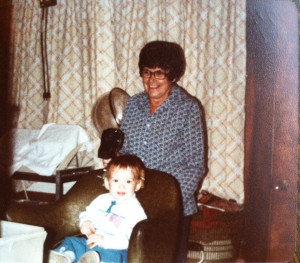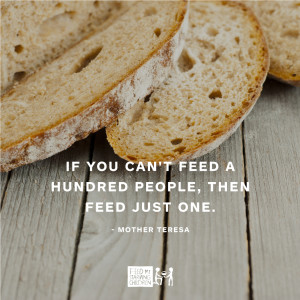When I was a young girl, I was laying down on the couch for a bit of rest – perhaps I was sick or just not upstairs taking a nap. I recall laying there and picking my nose. I barely had the finger extracted from my nostril when my Grandma Mary took a seat on the couch. She handed me a tissue and said, “If you need to fix something in your nose, please use a tissue.” No one around us heard the conversation. She didn’t embarrass or berate me. She didn’t show disgust. She smiled and looked earnestly at me as I wanted to dissipate.
That was her mode of operation. Joy spoke loudly in hoots and howls of laughter. Fear and sorrow whispered with the quiet sense that it wouldn’t have the last word. When you talked with Maryann, while you had your hair in the shampoo bowl or were waiting for a table at the Plaza, you had the sense that you were the only person in the room. She could be sharing a Christmas celebration with 10 grandchildren and each of us firmly believed we were the most special to her.
We would visit her throughout the summer on a whim – we would just pack a bag and go home with Grandpa on a given night, pick up Rebecca on the way, and then stay for a few days, usually until her bridge club met again. We had one, maybe two nights with her, yet she insisted upon getting us to the IGA to pick out our favorite “breakfast food” (that’s cereal to the kiddos). Sometimes, when we couldn’t decide between Alpha-bits and Honey Nut Cheerios, she’d demand we get them both. She was ridiculously generous like that.
She could arrive at any given venue and find a friend. Complete strangers unleashed their life stories because she listened with intensity, firmly believing this person’s story mattered. Grocery store clerks knew when her grandkids visited and her Avon lady took her shopping. Everyone mattered to her.
At her funeral, as the preacher gave opening words, the front row started shaking. You could see her 4 boys as they tried to swallow bits of laughter. Moving down the row, one person told the next that Grandma Mary likely hadn’t made it to heaven because she had to stop and talk to all the people along the way.
I would love to harness my inner-Maryann in honor of her 95th birthday today. I want to talk to people and see their innate value – speak to them like they’re the only person in the room. I want to get over my social awkwardness when I’m in big groups of people I don’t know and begin authentic conversation with the person beside me. (Seriously, I’m a mess. I’m good when I know one or two people and I can work outward, but in brand new situations I’m a disaster. I have to talk myself down from hiding in the bathroom). As I direct and guide my kids, I want to use quiet words in close proximity, not shouting reprimands from across the room.
I want to be the kind of person whose kids come home to play cards on the weekend because they just want another evening together. I want to radiate the kind of love that draws grandchildren close, not because they want something but because they feel something in my presence.
I want to be a good friend. The kind of friend that everyone thinks they’re my best friend.

